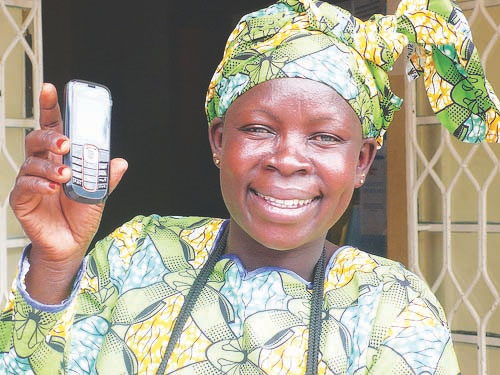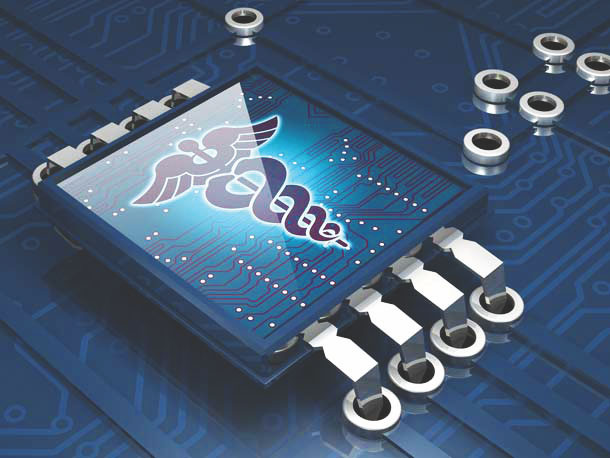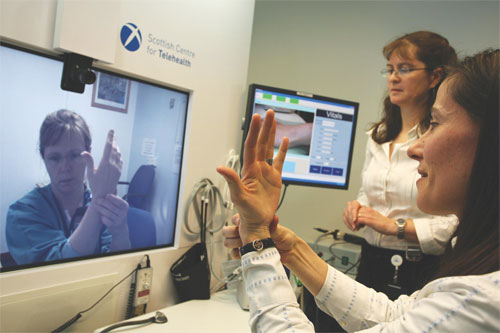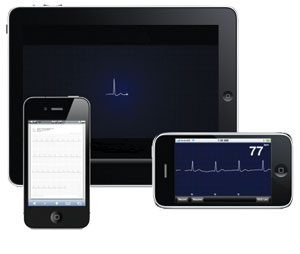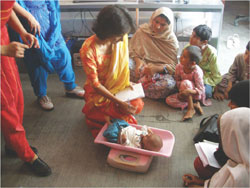
The introduction of telemedicine technology in Nigeria has the potential to change the course of healthcare delivery, especially in rural areas.
 The step towards introduction of tele-health began in 2007, when Intel announced a comprehensive set of digital inclusion projects aimed at improving education, healthcare and economic development for countrys 140 million populations. With the support of the Federal Ministry of Health, Intel launched a pilot project on telemedicine that brings critical pediatric care to a rural hospital serving a region of 4.5 million people. Nigerias first Telemedicine Center, linking a rural clinic in Bida of the central Niger State and the National Hospital Abuja, was inaugurated in Abuja. The center is an interactive healthcare platform, utilising telecommunications technology, to fast track consultations, diagnosis and prescription on real time basis.
The step towards introduction of tele-health began in 2007, when Intel announced a comprehensive set of digital inclusion projects aimed at improving education, healthcare and economic development for countrys 140 million populations. With the support of the Federal Ministry of Health, Intel launched a pilot project on telemedicine that brings critical pediatric care to a rural hospital serving a region of 4.5 million people. Nigerias first Telemedicine Center, linking a rural clinic in Bida of the central Niger State and the National Hospital Abuja, was inaugurated in Abuja. The center is an interactive healthcare platform, utilising telecommunications technology, to fast track consultations, diagnosis and prescription on real time basis.

With Intels support, doctors in Bida are now able to consult in real time with pediatric and surgical specialists in Abuja through the new telemedicine system, which features video conferencing and high-speed broadband connections through Wimax, a long-range wireless technology. The pilot makes it possible for physicians to shorten both time and distance in getting to patients to treat them. The system connects one of Nigerias flagship medical institutions, the National Hospital in Abuja with the Federal Medical Centre in Bida, a rural 200-bed medical facility. So far, patients who needed referrals from Bida were forced to travel at least 250 kilometers to reach specialists a trip which most cannot afford.
Developments in the telemedicine field are vital to help provide improved medical care for those living in rural areas and to ensure doctors who are able to perform more complex medical procedures. Africa is a highly populated landmass with many people unable to access basic medical care. By improving Africas healthcare system through remote access vehicles and technology, governments will be able to provide essential medical advice to those in need. Bida has an acute need for care from pediatric medical specialists. In the projects first phase, a fetal monitoring capability will permit baby doctors to remotely and more quickly consult with medical staff and examine expectant mothers to monitor the progress of their pregnancies. Intel is also training medical practitioners and technical specialists at both hospitals to use the new technology tools.
In early 2009, the Nigerian Federal Capital Territory Millennium Development Goals Unit (FCTMDGU), health officials, and Intel Corporation began discussing ways that Information and Communication Technology (ICT), could be used to improve health and healthcare delivery in rural areas. Intel decided to take healthcare to the communities through mobile health (mHealth) and telemedicine, which eventually, gave birth to the Mai Lafiya Health Programme. Recognised for its leadership in telemedicine technology, Intel Corporation was also presented the Nigerian Telemedicine Entrepreneurial Company Award by Frost & Sullivan in 2009 – one of Africas leading Excellence Awards platforms.

Be a part of Elets Collaborative Initiatives. Join Us for Upcoming Events and explore business opportunities. Like us on Facebook , connect with us on LinkedIn and follow us on Twitter , Instagram.







